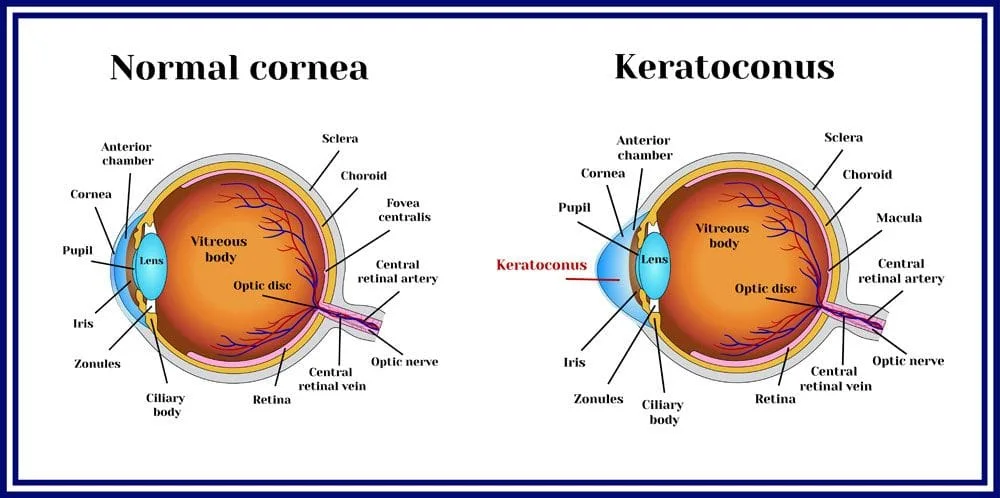In the world of ophthalmology, many eye conditions can cause significant vision loss and problems. One such condition is keratoconus. At Lock Family Eye Care in West Des Moines, we have run into quite a few questions regarding keratoconus. If you are concerned about this eye health disease or it has been a while since your last comprehensive eye exam, contact our eye doctors to schedule an appointment.

What is Keratoconus?
Keratoconus is a progressive eye disease in which the normally round cornea thins and begins to bulge into a cone-like shape. This abnormal curvature of the cornea makes it difficult for light entering the eye to be focused properly on the retina. Since the image formation process is being compromised, the person begins experiencing a distorted vision.
What Causes Keratoconus?
The exact cause of keratoconus is unknown. However, like most eye diseases, keratoconus has a genetic component. If you have the disease, there is about a 50 percent chance that one of your parents does as well. It affects both genders equally and typically appears between ages 15 to 30 although it can develop as early as infancy or as late as middle age.
How Is Keratoconus Diagnosed?
A comprehensive eye exam can often detect keratoconus. One of the first diagnostic tests your eye doctor will perform is called corneal topography. This map or picture created by a computer-controlled instrument shows the surface contour of your cornea in detail to determine its shape and any irregularities. This test takes about ten minutes.
What are the Treatment Options for Keratoconus?
The treatment options for keratoconus vary and may include glasses, soft contact lenses, or hard contact lenses depending on the severity of the disease. Gas permeable (GP) contact lenses are often the first choice of treatment because they closely match and conform to your unique corneal shape. Other treatment options are cross-linking, corneal transplants, and Intacs.
Contact Lock Family Eye Care in West Des Moines, IA
The first sign of keratoconus is usually blurred vision. As the cornea continues to bulge, people develop halos around lights at night, then decreased side (peripheral) vision, and finally tunnel vision. If you have begun experiencing these symptoms then it is time to schedule an appointment with one of our eye doctors at Lock Family Eye Care. Call our team today at (515) 267-1312 or reach us through our website by using our online contact form.


